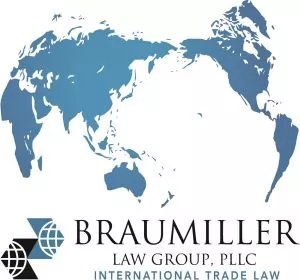- within International Law topic(s)
- in United States
- within Energy and Natural Resources, Technology and Strategy topic(s)
Importers who have paid tariffs imposed under the International Emergency Economic Powers Act (IEEPA) should take immediate steps to preserve their eligibility for potential refunds. Multiple lawsuits are currently challenging the legality of these tariffs, and the Supreme Court is set to decide the issue in November. If the Court ultimately invalidates the tariffs, importers may be entitled to recover duties paid. However, securing refunds depends on preserving jurisdictional options—especially given the uncertainty about whether these tariffs constitute a protestable decision under customs law. There are three potential refund mechanisms at play:
- Contesting a Protest Denial (§1581(a)). This is the most complicated mechanism that could be employed. When CBP makes a "decision" about a tariff or fee to be imposed on merchandise, the party subject to that tariff or fee can protest the decision under 19 U.S.C. §1514. If CBP denies that protest, the party can bring a claim challenging the denial under 28 USC §1581(a) in the Court of International Trade (CIT). The key question that will determine whether this is an option for importers who are subject to IEEPA tariffs is whether CBP's imposition of the tariffs is a "decision" or simply an automatic discretionless process. If it isn't a decision, then this option is unavailable.
- General Challenge to a Tariff Law (§1581(i)). This is the catch-all option. Under 28 USC §1581(i), a party can bring a civil action in the CIT contesting "any law . . . providing for . . . tariffs, duties, fees, and other taxes on the importation of merchandise." Unlike §1581(a), a claim under §1581(i) challenges a law itself rather than CBP's implementation of the law, so it is often a more difficult claim to win. If protesting a decision is an option, a party must do that before resorting to a §1581(i).
- Regulatorily-Defined Process. The last option is the easiest but requires CBP to define a process that does not yet exist. As will be discussed below, CBP has previously established its own refund procedures to comply with a Supreme Court ruling that required mass refunds. While this is the easiest option for an importer because it doesn't require filing a protest with CBP or claim before the CIT, it also requires the most work from CBP to establish, so importers should be wary of relying exclusively on it.
Hints from the Past: Harbor Maintenance Tax
Thankfully, CBP has dealt with large-scale refunds before, and its procedures for doing so give us some clues as to how it might handle IEEPA refunds. In 1998, the Supreme Court held that a statutorily imposed ad valorem "harbor maintenance tax" that CBP collected on all exports amounted to an unconstitutional export tax. Importantly, the Court held that since the tax was automatically levied and left no discretion to CBP, it was not a protestable decision under §1514. Therefore, §1581(i) was the proper statutory mechanism for relief.
To avoid having to address each refund request in the CIT, CBP established a refund procedure in 19 C.F.R. §24.24(e). Under the refund procedure, exporters had one year to submit a refund request to CBP electronically or via mail that contained: (1) the exporter's name, address, and EIN; (2) the name and EIN of any freight forwarder or other agent that made export fee payments on the exporter's behalf; and (3) the name and phone number of a point of contact.
Like the Court's harbor maintence tax decision, the Court's potential ruling against the IEEPA tariffs would entitle a large number of importers to refunds in a short period of time. Thus, it is reasonable to expect that CBP might define a process for refunds much like it did for the harbor maintence fees, so importers should keep an eye out for announcements and be prepared to timely submit the required information. That being said, importers should not solely rely on the goodwill of CBP for the refund process and should be prepared to pursue all available avenues.
Jurisdictional Strategy: Preserve Both §1581(a) and §1581(i)
The legal status of IEEPA-based tariff assessments is murky. CBP imposes these duties pursuant to Presidential directives and has no discretion to alter or decline them. This raises a key question of whether the tariffs are a protestable "decision" under §1514.
To preserve all jurisdictional pathways and avoid statute of limitations issues, importers should:
- File a protest with CBP within 180 days of liquidation, even if the issue may be deemed non-protestable.
- Treat any denial of the protest as a trigger for §1581(a) jurisdiction, which covers denied protests.
- Simultaneously assert §1581(i) jurisdiction in any lawsuit, as a fallback in case the court finds the issue non-protestable and dismisses the §1581(a) claim.
This dual-track approach ensures that importers can litigate under the most appropriate jurisdiction without risking procedural bars. Courts have recognized that §1581(i) may be invoked when no other adequate remedy exists, but they also require plaintiffs to exhaust protest procedures when available. Filing a protest—even one that CBP is required to deny—helps satisfy this requirement and preserve both avenues.
Action Plan for Importers
Review Entry Data
- Use ACE to identify entries subject to IEEPA-based tariffs.
- Archive reports regularly to maintain a complete historical record.
Monitor Liquidation Dates
- Track liquidation timelines closely, especially for entries from early 2025.
- Ensure protests are filed within 180 days of liquidation.
Request Liquidation Extensions
- Submit extension requests to CBP (which may grant up to three years).
- Confirm and document any extensions received.
File Protests
- File formal protests challenging the legality of IEEPA-based tariffs.
- Include a request to stay the protest pending resolution of the litigation.
Prepare for Litigation
- If CBP denies the protest, file suit in the Court of International Trade asserting both §1581(a) and §1581(i) jurisdiction.
- Clearly plead §1581(i) as an alternative basis to avoid dismissal and SOL issues.
Document Thoroughly
- Maintain detailed records supporting your claims.
Conclusion: Act Now to Safeguard Refund Rights
With the Supreme Court poised to rule on the legality of IEEPA-based tariffs, importers face a critical window to preserve their refund eligibility. The path to recovery is complex and jurisdictionally nuanced—but not impossible. By proactively filing protests, tracking liquidation dates, and preparing for litigation under both §1581(a) and §1581(i), importers can position themselves to benefit from a favorable ruling. History suggests that CBP may eventually define a refund process, but relying solely on regulatory goodwill is a risky strategy. The time to act is now: preserve your rights, document thoroughly, and stay vigilant. The stakes are high—and preparedness will be the key to unlocking potential refunds.
Check out our new Digital Magazine Get the inside scoop on the Braumiller Law Group & Braumiller Consulting Group "peeps." Expertise in International Trade Compliance.
The content of this article is intended to provide a general guide to the subject matter. Specialist advice should be sought about your specific circumstances.


